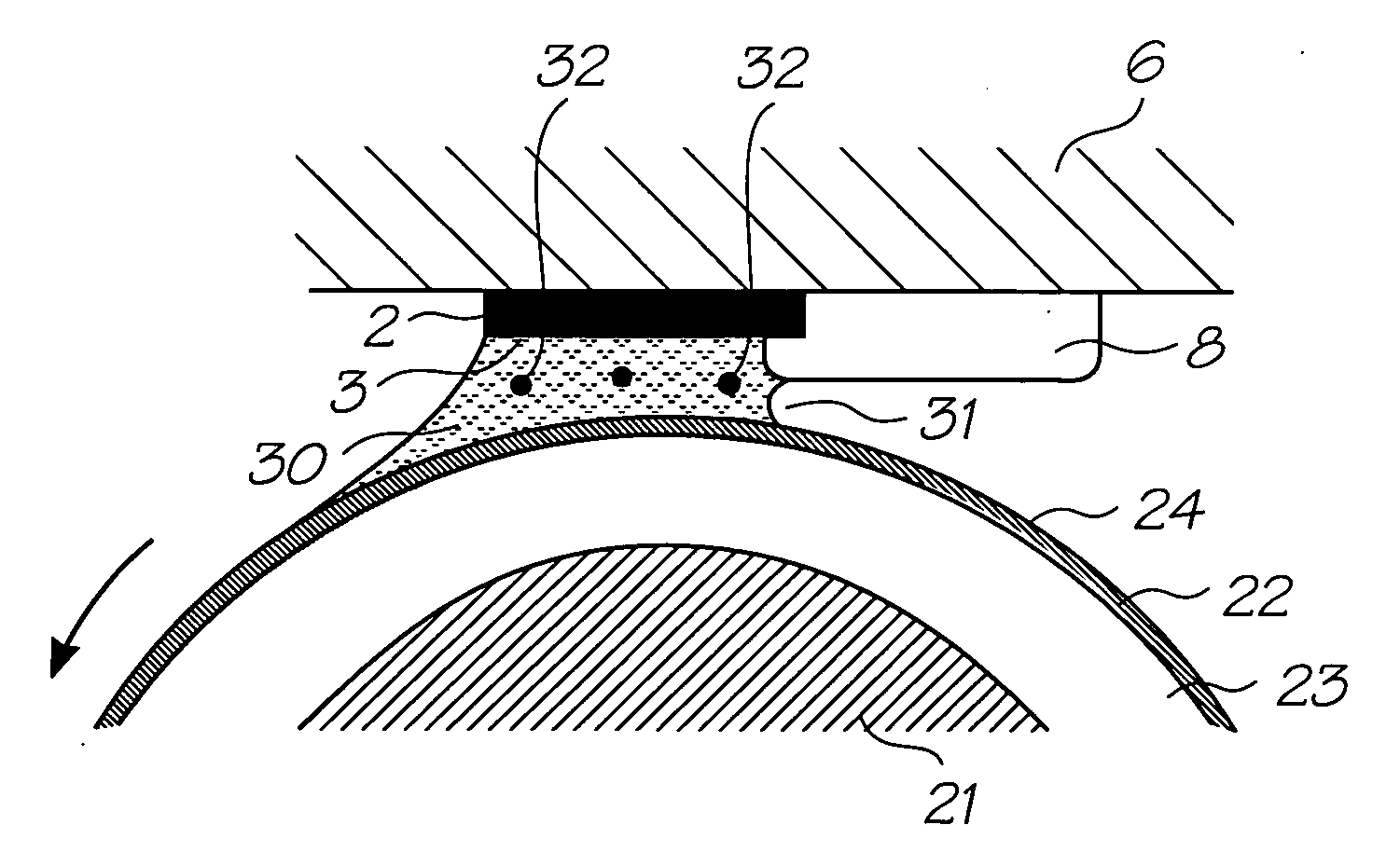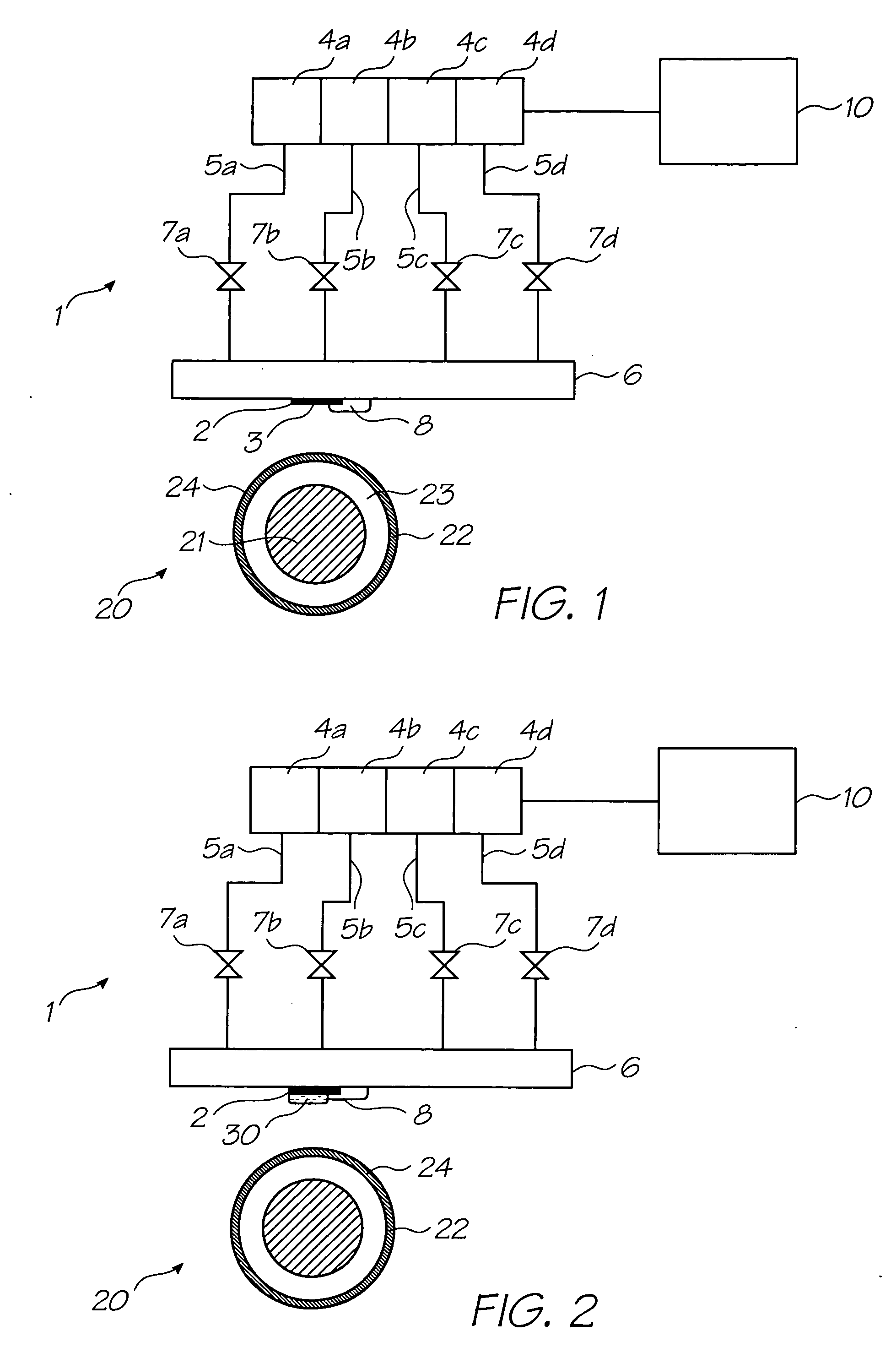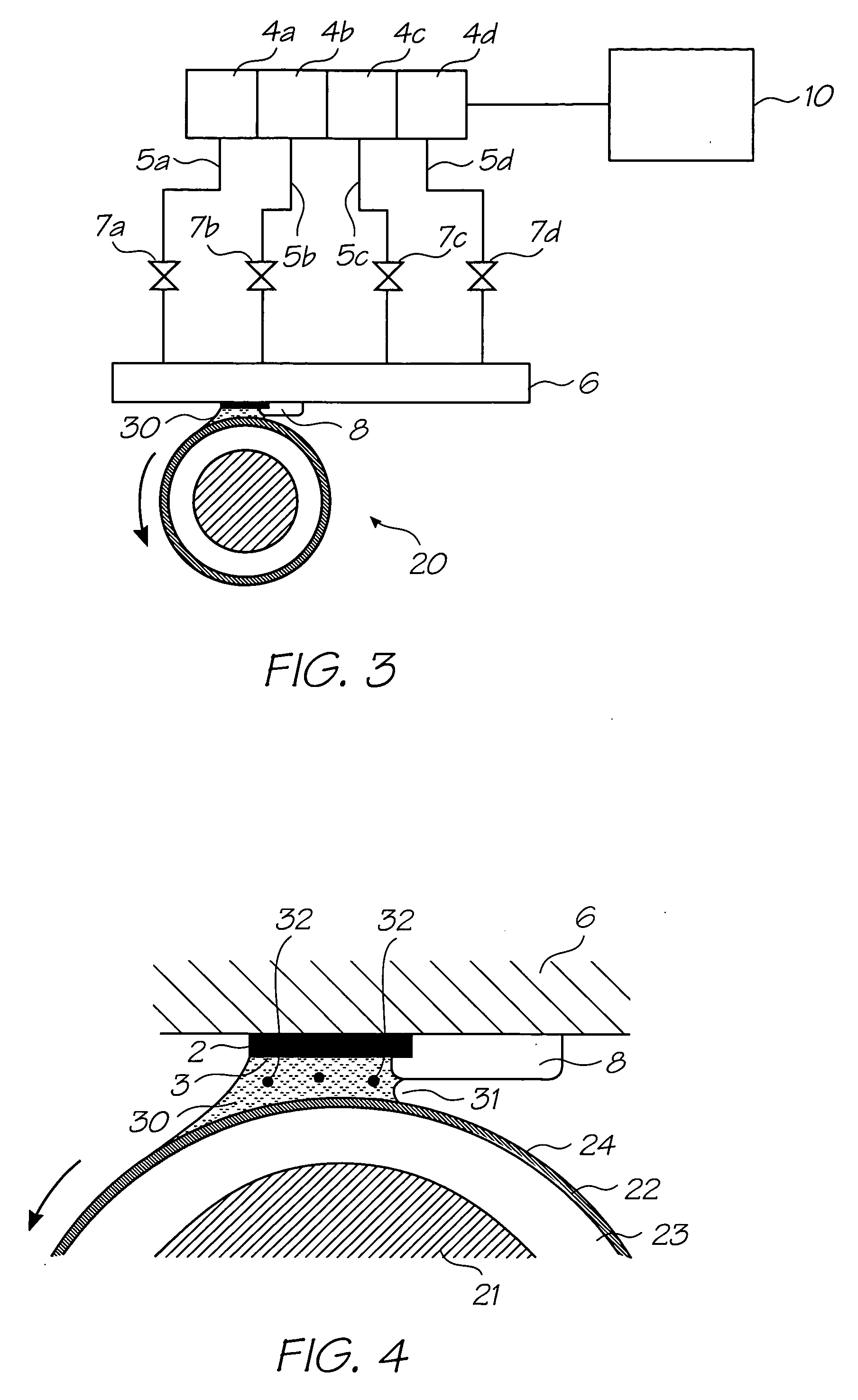Method of removing flooded ink from a printhead using a rotating roller
a technology of rotating rollers and inkjet printers, applied in printing and other directions, can solve the problems of slow print speed of all commercially available inkjet printers, printhead failure, paper dust, etc., and achieve the effect of simple design, low cost and optimal cleaning action
- Summary
- Abstract
- Description
- Claims
- Application Information
AI Technical Summary
Benefits of technology
Problems solved by technology
Method used
Image
Examples
Embodiment Construction
Printhead Maintenance System Comprising Maintenance Roller
[0394] Referring to FIG. 1, there is shown a printhead maintenance system 1 for maintaining a printhead 2 in an operable condition. Throughout the lifetime of the printhead 2, nozzles may become blocked with a viscous plug of ink during periods when the printhead is idle. This is a phenomenon known in the art as decap and invariably leads to the sub-optimal printing.
[0395] Alternatively, paper dust may build up on the ink ejection face 3 of the printhead 2, leading to misdirected ink droplets from partially obscured nozzles or even blocked nozzles. The printhead maintenance system 1 is configured to maintain the printhead in an optimal operating condition by unblocking any blocked nozzles and / or removing particulates from the ink ejection face 3.
[0396] The printhead maintenance system 1 comprises a plurality of ink reservoirs 4a, 4b, 4c and 4d, each supplying ink to the printhead 2 via respective ink conduits 5a, 5b, 5c a...
PUM
 Login to View More
Login to View More Abstract
Description
Claims
Application Information
 Login to View More
Login to View More - R&D
- Intellectual Property
- Life Sciences
- Materials
- Tech Scout
- Unparalleled Data Quality
- Higher Quality Content
- 60% Fewer Hallucinations
Browse by: Latest US Patents, China's latest patents, Technical Efficacy Thesaurus, Application Domain, Technology Topic, Popular Technical Reports.
© 2025 PatSnap. All rights reserved.Legal|Privacy policy|Modern Slavery Act Transparency Statement|Sitemap|About US| Contact US: help@patsnap.com



